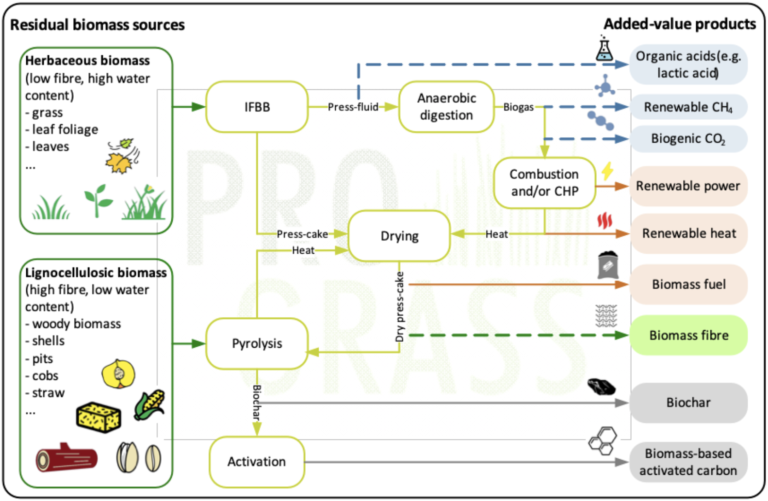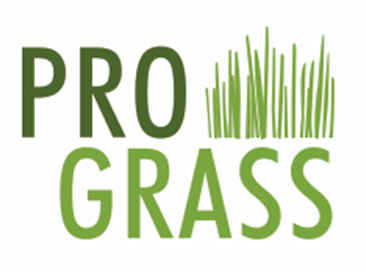Background and Challenges
Biomass is an abundant source of biogenic carbon and thus it plays an important role in hindering the accumulation of fossil-based CO2 in the atmosphere. Nevertheless, large amounts of biomass resources are still underexploited. For example, landscape management biomass (e.g. grass, roadside cuttings, tree and hedge clippings, leaf foliage), crop cultivation and processing by-products (e.g. straw, stubble, stems, cobs, bran) and food industry by-products (e.g. fruit stones, shells, pomace). These are so-called ‘residual biomass’ sources.
Management of residual biomass is often problematic and associated with a financial burden. Residual biomass in its initial state usually has low value – for instance, low nutritive value and therefore a low value for using it for food or feeding to animals; is scattered in a large territory or located in a difficult accessible place and therefore expensive to harvest, collect or transport; has low yields; is contaminated with soil, containing high concentrations of minerals or low-digestible fibres and, therefore, is not preferred for energy production. Due to these reasons, residual biomass is often left to decay, or in the best case composted, or needs to be handled as a waste.
Aim of Research

Our overarching research goal is to develop methods, technologies, and framework conditions that allows converting residual biomass resources into added-value products. An illustration of the research concept in PROGRASS is given in the figure above.
Our research objectives:
- Development of comprehensive residual biomass properties database by characterisation and testing of various residual biomass sources
- Investigation of relations between the properties of the parent material and the quality of the end-product
- Adjustment and optimisation of the IFBB process parameters to obtain the desired quality end-product
- Adjustment and optimisation of pyrolysis and activation process parameters to produce biochar and activated carbon tailored to a specific application (e.g. custom-made activated carbon for adsorption of a specific substance in a liquid or gas)
- Testing of the residual biomass-based biochar and activated carbon applications in wastewater treatment and other agricultural and industrial sectors
Further research objectives:
- Identification of further underexploited biomass resources with potential for economic, environmental, and social benefits
- Investigation of further residual biomass valorisation pathways, e.g. potential extraction of bio-based chemicals and bioactive compounds from the press-fluid; using the press-cake as a source of fibres for materials like bioplastics, composites or as a source of lignin and cellulose in bio-based industry
- Transferring of the PROGRASS approach to further sectors and geographic areas
General Approach
Residual biomass valorisation concepts of PROGRASS involve several disciplines and require expertise in different scientific domains. Therefore, the above given research questions are addressed following the transdisciplinary and participatory approaches. The PROGRASS network holds expertise in agriculture, agronomy, soil science, environmental and process engineering, water and wastewater treatment, laboratory analytics, life cycle assessment, resource efficiency, renewable energy, remote sensing, and circular economy.
Research is done in a close collaboration with stakeholders from practice. Public utilities, organisations responsible for residual biomass management, nature protected area management bodies, and landscape and regional development planners support the research activities in a participatory way. Moreover, the network maintains collaboration with private sector and SMEs, in particular regarding development and optimisation of technology components. This collaboration is essential for bringing the PROGRASS technology from a laboratory to industrial scale applications.
